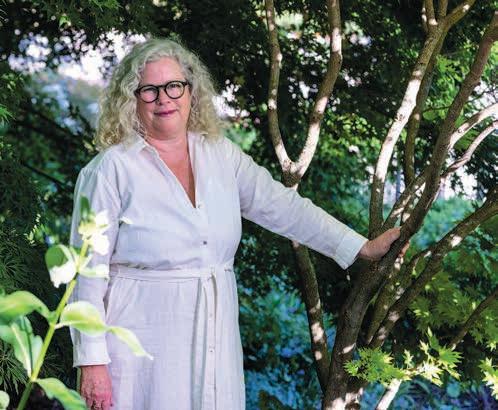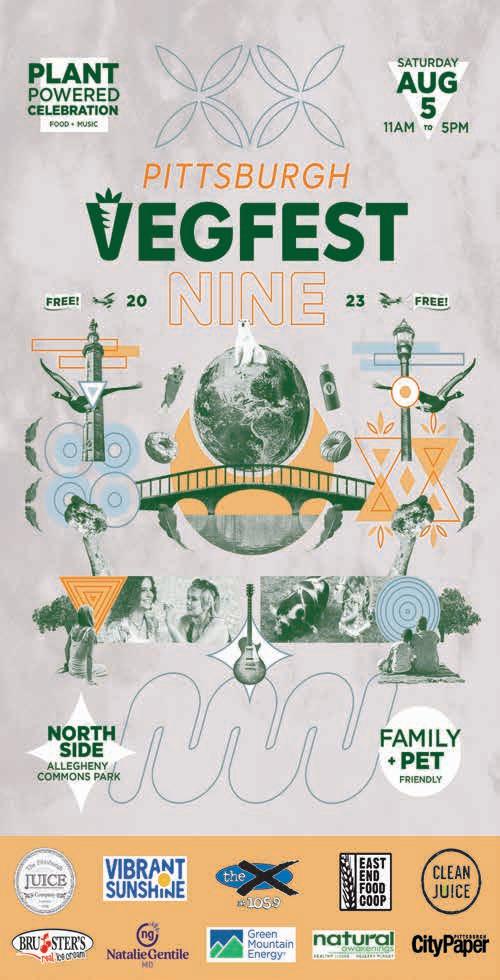
3 minute read
Maria Rodale
On Letting Nature Heal Itself
by Sophia Ellis Kreider
Advertisement
Bestselling author, activist and gardener Maria Rodale is a board member of Rodale Institute, a nonprofit dedicated to growing the regenerative organic agriculture movement through research, farmer training and education. She is the former CEO of Rodale Inc., the global health and wellness media company that published notable books and magazines, including Al Gore’s An Inconvenient Truth. Her own books include Organic Manifesto: How Organic Food Can Heal Our Planet, Feed the World, and Keep Us Safe, as well as Scratch: Home Cooking for Everyone Made Simple, Fun, and Totally Delicious. In her latest work, Love, Nature, Magic: Shamanic Journeys into the Heart of My Garden, Rodale leads readers through her relationship with the plants, animals and insects that inhabit her garden and shares the life lessons these often misunderstood creatures taught her.
Why did you write this book?
It was a combination of sensing that “spirit” wouldn’t allow me not to and the recognition that I could write the book in my own way, with humor and irreverence. It’s been my experience that once we begin following the path that spirit provides for us, things become easy. As someone on the older side of life, I’ve also noticed that when I don’t listen to that guidance, I tend to really mess things up, so even when I don’t understand the path, I have to follow it.
What is the most significant message nature is trying to share with us?
The overarching message, which has been reinforced since I wrote the book, is that nature wants to feel free to do whatever it needs to do to heal things. The more we try to control nature, the more frustrated it gets. The same is true for people; the freer we feel, the happier and more productive we are. All efforts to control, whether it’s controlling human behavior or landscapers trying to control the landscape, are not helpful in any way. If we want to solve the climate crisis or the environmental crisis, we need to allow nature to be free and do its job.
The other message I received from nature relates to humans’ tendency to search for plants, take them, hoard them, eat them and rub them on our skin. In reality, we don’t need to do these things to benefit from plants. We can simply be in harmony with them in order to absorb their healing energy. So again, it’s about freedom, releasing control and trusting our relationship with plants and nature.
What role does courage play in exploring what plants, insects and animals have to teach us?
Many of us are afraid of having new experiences or have anxiety about things we don’t understand. When this happens, we can choose to stay in the fear or encourage ourselves through it. When we choose courage and curiosity, we often learn a new skill or power. For example, when I was journeying and getting to know mosquitos and ticks, I felt afraid but chose to keep going. While I didn’t come to love the mosquitos and ticks, I developed compassion and respect for them.
To understand what nature is communicating to us, we need to get curious and unlearn what our parents and culture taught us about how our garden should look or how we should interact with it. We can ask ourselves, “What am I afraid of? Where did the fear come from?” and listen for the answer.
What role does personal trauma play in healing our planet?
Trauma is the root of everything— crime, abuse and all the things that make us unhappy and destructive, both towards each other and nature. That’s one of the reasons I was excited to share the parents’ creed in the milkweed chapter. The creed teaches that in order to stop trauma, we must raise kids well from the start. The challenge is that our culture doesn’t provide the information we need to minimize our mistakes or prevent trauma in the first place. Openness to learning about ourselves is key to healing trauma. When we heal our traumas, we are less likely to project trauma onto other living beings, including nature.
If people respond to life with curiosity instead of fear, and love instead of control, we can evolve amazingly fast and have fun doing it. This is the wonderful work we can accomplish together with nature—envisioning and building new systems and ways of being on this beautiful Earth.

Sophia Ellis Kreider is a freelance writer in Lancaster, PA, and a regular contributor to Natural Awakenings. Connect at SophiaEllisKreider@gmail.com.









